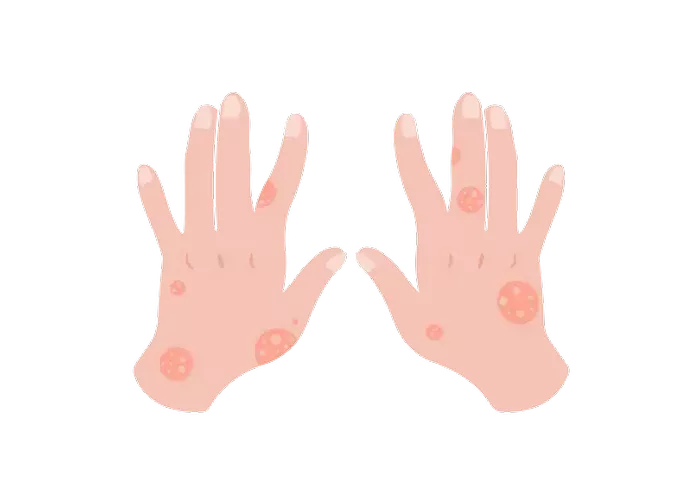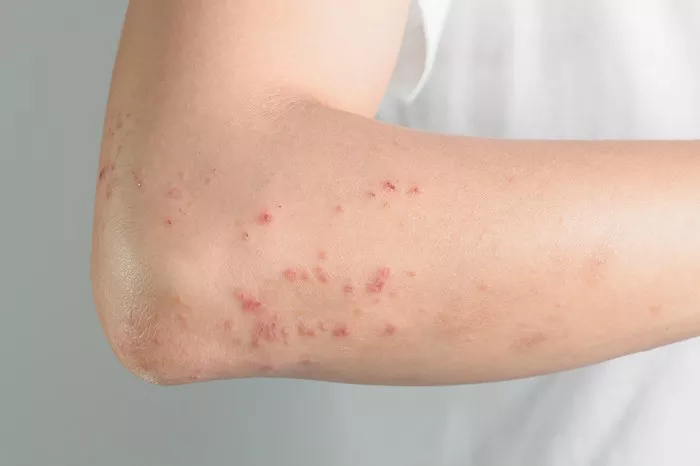Eczema is a chronic skin condition that causes inflammation, itching, and redness. It can affect people of all ages and be triggered by various factors like allergies, irritants, or stress. If you’re experiencing an eczema flare-up, you might want immediate relief. While it’s essential to treat eczema consistently over time, there are several methods to stop eczema flare-ups quickly. In this article, we will discuss practical steps that can help soothe eczema fast and provide relief.
1. Identify and Avoid Triggers
Eczema flare-ups are often triggered by specific factors. Identifying and avoiding these triggers is one of the most effective ways to stop eczema fast.
Common eczema triggers include:
Harsh soaps and detergents: These can dry out the skin and irritate it further.
Allergens: Pollen, dust mites, pet dander, and certain foods can worsen eczema.
Stress: Emotional stress can lead to a flare-up or make it worse.
Extreme temperatures: Both heat and cold can cause the skin to dry out or become irritated.
Dry skin: Lack of moisture can exacerbate eczema symptoms.
To stop eczema fast, it’s crucial to minimize exposure to these triggers. For instance, if you know that pollen exacerbates your eczema, try staying indoors during peak pollen seasons. If stress is a trigger, practice relaxation techniques like meditation or deep breathing.
2. Use a Moisturizer Immediately After Bathing
Moisturizing your skin is key to managing eczema. Dry skin can make eczema worse, so keeping your skin hydrated is essential. However, it’s not just about using any moisturizer; it’s important to apply the right kind.
Choose thick, fragrance-free creams: Thick creams or ointments lock in moisture better than lotions. Look for creams that are fragrance-free to avoid irritating your skin further.
Apply right after bathing: The best time to apply moisturizer is immediately after a bath or shower, while your skin is still damp. This helps trap moisture in the skin, which can prevent dryness and irritation.
Use moisturizers with ceramides: Ceramides are naturally occurring lipids in the skin that help retain moisture. Look for products that contain ceramides to help repair the skin barrier.
Regular moisturizing is one of the fastest ways to reduce eczema symptoms and prevent future flare-ups.
3. Take Lukewarm Baths with Epsom Salt or Colloidal Oatmeal
Bathing can help soothe irritated skin and relieve itching. However, it’s important to avoid hot water, as it can dry out and irritate the skin. Lukewarm baths are much gentler.
Add Epsom salt: Epsom salt has anti-inflammatory properties that can help reduce itching and inflammation. Add about 1-2 cups of Epsom salt to your bathwater and soak for 15-20 minutes.
Use colloidal oatmeal: Colloidal oatmeal is finely ground oatmeal that can help soothe irritated skin. It has anti-inflammatory and moisturizing properties that can provide relief from itching and irritation. You can find colloidal oatmeal-based products in most pharmacies, or you can make your own by adding oatmeal to a mesh bag and placing it under the faucet while running your bath.
After your bath, gently pat your skin dry with a soft towel and apply a moisturizer.
4. Apply Cold Compresses to Reduce Itching
Itching is one of the most uncomfortable symptoms of eczema. Applying a cold compress to the affected area can provide quick relief. The cold helps numb the skin and reduces the urge to scratch.
To use a cold compress:
Use a clean cloth or towel: Soak a soft cloth in cold water and wring out the excess. Apply it to the eczema-affected areas for 10-15 minutes.
Repeat as needed: You can apply the cold compress several times a day if needed to manage itching.
Cold compresses are especially helpful if you have a localized eczema flare-up, such as on the hands or elbows.
5. Apply Topical Steroid Creams
Topical corticosteroids, commonly known as steroid creams, are commonly prescribed for eczema. These creams can help reduce inflammation and irritation quickly. They are particularly useful for flare-ups that don’t respond to other treatments.
Use as directed: Apply a thin layer of steroid cream to the affected area. Be sure to follow your healthcare provider’s instructions regarding how often to apply it and how much to use.
Choose the right strength: Steroid creams come in different strengths. If you have severe eczema, you may need a higher-strength corticosteroid. However, lower-strength creams may be sufficient for mild flare-ups and can be used more frequently.
While steroid creams are effective for stopping eczema fast, they should be used cautiously. Overuse of steroids can lead to thinning of the skin and other side effects, so they should only be used as directed by a healthcare professional.
6. Consider Over-the-Counter Hydrocortisone Cream
If you don’t have access to prescription steroid creams, over-the-counter hydrocortisone creams can be a useful alternative. Hydrocortisone is a mild corticosteroid that can help reduce inflammation and itching.
Apply sparingly: Use a small amount of hydrocortisone cream on the affected area. It’s best to apply it in thin layers to avoid overuse.
Use for short periods: Over-the-counter hydrocortisone should only be used for short periods, typically 7-14 days, as prolonged use can cause side effects.
This treatment can be particularly useful for managing minor flare-ups and getting relief fast.
7. Try Antihistamines for Itch Relief
If itching is unbearable, taking antihistamines can help. These medications block histamine, a chemical released during allergic reactions that causes itching.
Choose non-drowsy antihistamines: Some antihistamines, like cetirizine or loratadine, are designed to relieve itching without causing drowsiness. These are best for daytime use.
Consider drowsy antihistamines at night: If your eczema is causing significant discomfort at night, you may want to try a drowsy antihistamine like diphenhydramine (Benadryl) to help you sleep better.
While antihistamines can provide short-term relief from itching, they should not be relied upon long-term for eczema management.
8. Use Natural Remedies for Eczema Relief
Some people find relief from eczema using natural remedies. While these may not work for everyone, they can be a good option for soothing irritated skin.
Aloe vera: Aloe vera has cooling and soothing properties. You can apply pure aloe vera gel to the affected areas to reduce redness and itching.
Coconut oil: Coconut oil has moisturizing and anti-inflammatory properties. It can help lock in moisture and prevent the skin from drying out. Applying a small amount of virgin coconut oil to the affected area may provide relief.
Honey: Honey has natural antibacterial properties that can help prevent infection in open eczema sores. It also has moisturizing effects. Apply honey directly to the skin or mix it with other soothing ingredients like aloe vera for extra relief.
Before trying any natural remedy, make sure you don’t have allergies to the ingredients. Always perform a patch test to ensure that your skin reacts positively.
9. Protect Your Skin from Scratching
Scratching eczema can make the condition worse by causing further irritation, open sores, and infection. While it’s difficult to resist the urge to scratch, especially during a flare-up, there are ways to minimize damage:
Wear soft gloves or socks at night: If you scratch in your sleep, wearing cotton gloves or socks over your hands can prevent further irritation.
Cover eczema-prone areas with clothing: If possible, cover your eczema patches with soft, breathable fabrics to avoid scratching throughout the day.
Distraction can also help; try gently massaging the area or using a cold compress to soothe itching instead of scratching.
10. Maintain a Healthy Skin Care Routine
To stop eczema flare-ups quickly and prevent future outbreaks, it’s important to maintain a regular skin care routine. This includes moisturizing regularly, avoiding harsh products, and making gentle skin care choices.
Use gentle, fragrance-free products: Choose cleansers, shampoos, and lotions that are specifically formulated for sensitive skin. Avoid products with fragrances, alcohol, or harsh chemicals that can irritate the skin.
Keep your skin hydrated: Moisturize at least twice a day, especially after bathing. Keeping your skin hydrated can help prevent eczema flare-ups and minimize irritation.
Conclusion
While eczema can be a frustrating condition, there are several strategies that can provide fast relief from flare-ups. By identifying triggers, using appropriate topical treatments, moisturizing regularly, and practicing good skin care, you can reduce eczema symptoms quickly and effectively. If you find that home remedies and over-the-counter treatments aren’t helping, it’s important to consult with a healthcare professional for further guidance. Eczema is a chronic condition, but with the right approach, you can manage it and find relief.
Related topics


























